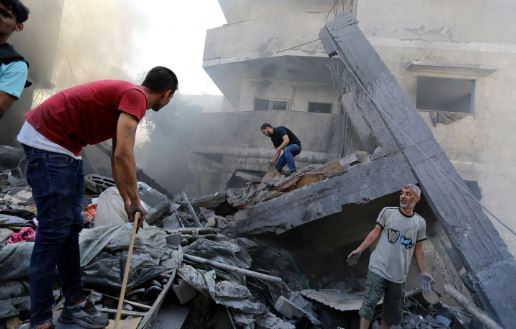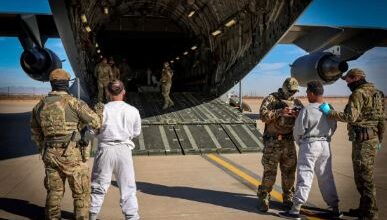Israel-Gaza War: Escalating Humanitarian Crisis with Hunger and Disease

The ongoing conflict in Gaza, marked by severe Israeli attacks, has precipitated a humanitarian crisis with a significant increase in hunger and the spread of diseases. The situation has reached a point where the United Nations human rights chief has declared widespread outbreaks of disease and hunger as “inevitable” in the region.
The alarming depletion of fuel in Gaza, a consequence of the conflict, has catastrophic implications. Essential services like sewage systems, healthcare, and humanitarian aid delivery are collapsing. This situation is leading to massive outbreaks of infectious diseases and intensifying hunger among the population.
In the backdrop of heavy air attacks and ground fighting, about 18,000 Palestinians have been killed, and 49,500 wounded since the beginning of the conflict on October 7. The dense population of Gaza, coupled with the destruction of infrastructure and lack of clean water, has exacerbated the public health crisis.
The World Health Organization (WHO) has reported worrying trends in the spread of diseases in Gaza, with an unusually large number of cases of diarrhoeal disease. The health system’s disruption, lack of access to clean water, and overcrowding in shelters contribute to this surge in illnesses.
In Khan Younis, Gaza, the situation is dire. Sewage flows in the streets, and for the 2.3 million residents, finding drinkable water has become nearly impossible. The lack of clean water has led to the spread of gastrointestinal diseases, respiratory infections, and skin diseases, including scabies. There is also a growing fear of cholera outbreaks if urgent humanitarian aid is not provided.
The collapse of water and sanitation services could potentially spark bouts of cholera. The average person in Gaza is consuming only about 3 liters of water per day for drinking and sanitation, significantly less than the 7.5 liters recommended by WHO in emergencies.
As Gaza’s essential water and sanitation infrastructure either gets destroyed or runs out of fuel, the public health crisis deepens. The situation is so critical that even the Ministry of Health in Gaza has warned of the risks, especially to patients with kidney failure, including children.
Amidst this chaos, humanitarian officials are calling for more aid to enter Gaza. The World Food Programme has highlighted the acute shortages of food and water, with civilians facing immediate threats of dehydration and starvation.
This conflict has not only caused loss of life and physical injuries but is also creating a severe public health crisis that could have long-lasting repercussions for the people of Gaza.





